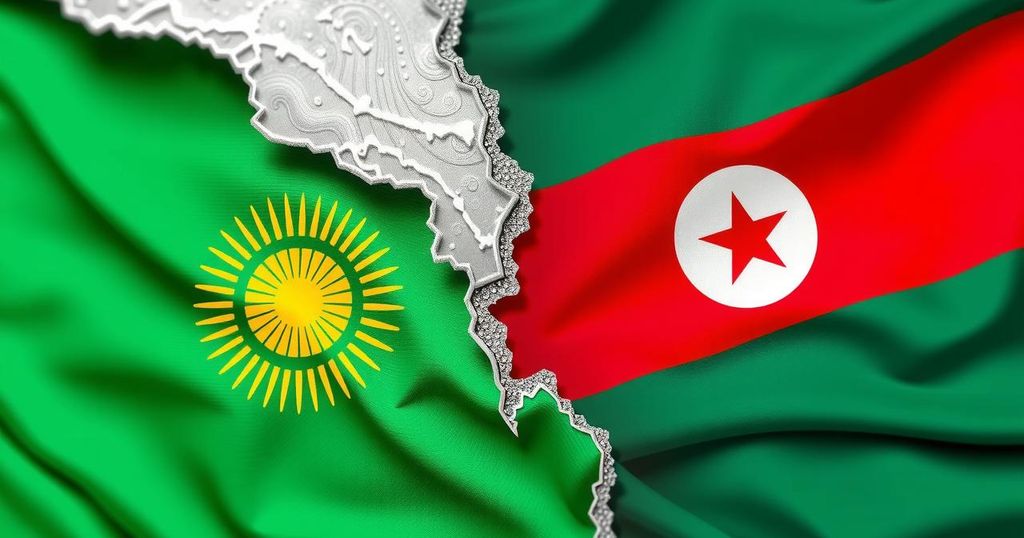Global news
- LED COLLECTIVE SECURITY TREATY ORGANIZATION, ASIA, BATKEN, BISHKEK, COLLECTIVE SECURITY TREATY ORGANIZATION, DIPLOMACY, EUROPE, EUROPE/ASIA, GEOPOLITICS, INTERNATIONAL RELATIONS, KAM, KAMCHYBEK TASHIEV, KYRGYZSTAN, RUSSIA, SAD, SAI, SANCTIONS, TAJIKISTAN, UKRAINE, UN, VLADIMIR PUTIN
Isaac Bennett
0 Comments
Kyrgyzstan and Tajikistan Resolve Longstanding Border Dispute with New Agreement
Kyrgyzstan and Tajikistan announced a border demarcation deal on December 4, addressing longstanding disputes along their 970-kilometer frontier. This agreement, reached by the heads of national security, follows a deadly conflict in September 2022 and signifies a thawing of relations between the countries, both of which have been impacted by previous border clashes and geopolitical dynamics.
On December 4, Central Asian neighbors Kyrgyzstan and Tajikistan achieved a significant milestone by announcing an agreement on border demarcation, which addresses the last contested areas along their 970-kilometer frontier. This historic agreement, reached by the heads of the respective secret services of Bishkek and Dushanbe, is poised to resolve territorial disputes that have persisted for decades, particularly following the intense and deadly conflict in September 2022, which resulted in approximately 100 fatalities.
The border, characterized by challenging mountainous terrain, had remained undelineated, exacerbating tensions between both nations. In a meeting that took place in Batken, Kyrgyzstan, the leaders of the two nations’ security services affirmed their commitment by publicly exchanging handshakes and announcing that they had “reached an agreement and fully completed the drawing of the remaining sections of the Kyrgyz-Tajik state border.”
Originating from Soviet administrative practices, the border dispute has caused significant strife since the dissolution of the USSR in 1991, particularly regarding access to water resources, which have become increasingly critical amidst climate change. In light of the latest agreement, relations between the five ex-Soviet Central Asian nations appear to be improving, providing hope for future collaborations.
The governments of Kyrgyzstan and Tajikistan had previously initiated dialogues on border issues during a UN summit last year, indicating a desire to resolve conflicts amicably. The severe clashes in autumn 2022 led to many residents fleeing border regions, yet the tensions eased sufficiently to foster the recent cooperative engagement. Notably, both nations sought assistance from Russia, the traditional mediator for Central Asian conflicts, however, the Kremlin’s involvement in the negotiations remains uncertain, especially given its current preoccupations with the Ukraine conflict.
The border conflict between Kyrgyzstan and Tajikistan dates back to the Soviet era when arbitrary administrative borders were drawn without regard for the geographic and historical complexities of the territories. Since the fall of the Soviet Union in 1991, these borders have been a source of ongoing disputes, sometimes escalating into violent confrontations. Key issues often revolve around access to essential resources such as water, which is particularly scarce in mountainous regions. Recent geopolitical shifts, including heightened interest from global powers like China, Turkey, and the European Union amid Russia’s distraction with the Ukraine war, have contributed to a more dynamic environment for resolving such conflicts. The 2022 clashes were the worst since the Soviet Union’s collapse, emphasizing the urgency for both nations to seek diplomatic resolutions. The involvement of regional powers and the necessity for clarity over historical maps further complicate the conflict’s resolution.
The recent border demarcation agreement between Kyrgyzstan and Tajikistan marks a significant step towards resolving long-standing territorial disputes that have plagued the region for decades. Following violent confrontations, the parties involved have demonstrated a willingness to engage in constructive dialogue, which signals a hopeful trend towards improved relations and stability in Central Asia. As these nations work towards formalizing the border agreement, global and regional influences continue to shape the landscape of cooperation and conflict in a geopolitically sensitive area.
Original Source: www.lemonde.fr




Post Comment